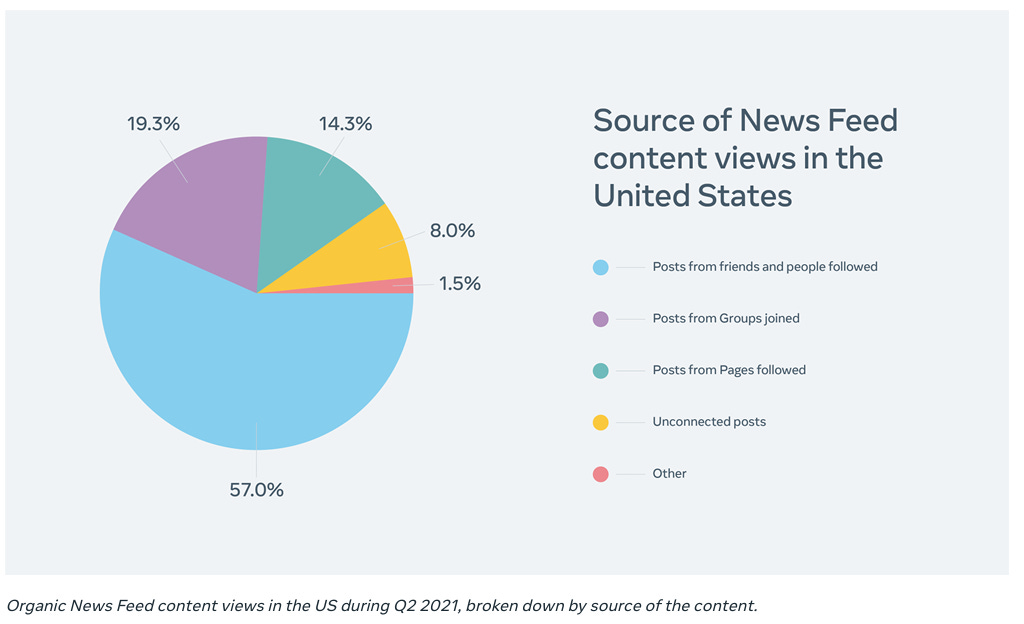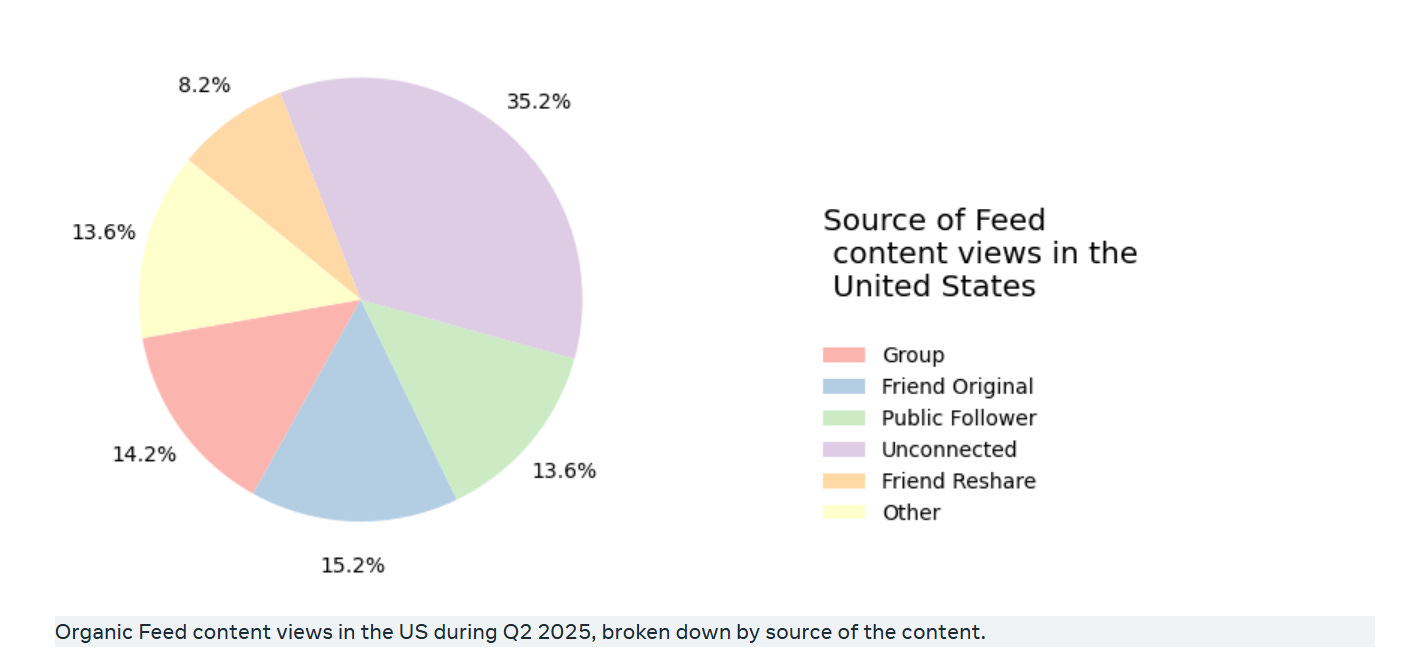Meta's (lack of) Agency
Back in 2018, Mark Zuckerberg wrote on Facebook:
“One of our big focus areas for 2018 is making sure the time we all spend on Facebook is time well spent.
…recently we've gotten feedback from our community that public content -- posts from businesses, brands and media -- is crowding out the personal moments that lead us to connect more with each other.
It's easy to understand how we got here. Video and other public content have exploded on Facebook in the past couple of years. Since there's more public content than posts from your friends and family, the balance of what's in News Feed has shifted away from the most important thing Facebook can do -- help us connect with each other.
…I want to be clear: by making these changes, I expect the time people spend on Facebook and some measures of engagement will go down.”
During 2018-20 period, one KPI Meta (then Facebook) often used to mention in earnings calls is MSI or Meaningful Social Interaction which prioritizes social interactions over passive consumption of content.
It is, of course, quite rare for a business to knowingly pursue a strategy that will certainly harm both their top and bottom line in the near term in the hope that it may yield long-term benefits. This was also perhaps indicative of Meta’s level of comfort of their own position in consumers lives to the extent that they wanted to exert how their users should spend their time. Meta thought connection is the long-term moat and if they can build more meaningful interactions through Meta’s properties, that should lead to long-term relevance of its business even if it means some short-term sacrifices in top and bottom line.
However, the promised benefits in the long-term were far more uncertain than even Meta perhaps appreciated. The attention landscape is just too volatile to “model” the financials with very high confidence. You could go back to 2010 and worry about Meta’s transition to mobile. Even in 2015, you could be understandably a bit worried if someone told you that the two most interesting formats for the “next five years” would be ephemeral stories and short-form videos and both of them would be invented by Meta’s competitors which would force Meta to play catch-up.
Even in 2021 when TikTok threat was way more apparent, majority of Facebook feed consisted of content from your friends and people you chose to follow. While looking at a chart like this, I used to be deeply concerned about a major risk Meta faces. Meta doesn’t publish this data, but I suspect if we could see content posted on feed per MAU per month over time, it is likely to be in secular decline. So, if Meta doesn’t have enough content to fill our feeds to keep it engaging, will we really spend much time on Meta’s apps in the long run?

A lot of people look at big tech companies and overestimate how much agency these companies have over our lives. I think what is perhaps likely much closer to reality is these companies, especially Meta are in the business of very closely observing our own behavior and then trying their bloody best to serve our own preferences. To the extent they fail to do this job well, the users still have plenty of agency to go elsewhere to satisfy their preference.
Given this reality, it is perhaps less surprising that Meta’s 2Q’25 transparency report shows a dramatically different picture of their feed compared to just four years ago!

I do want to highlight that connection remains a core dynamic in Meta’s properties, but the way we connect these days has fundamentally shifted over the last few years. Adam Mosseri hinted at this in this thread:
People are sharing to feeds less, but to stories more and (even photos and videos) in messages even more still…So it's no so much that people are sharing less, but rather than they're sharing differently.
Ultimately, feed itself has lost its relevance a bit over time and conversation has gradually shifted to private DMs. Mosseri mentioned in Rick Rubin’s podcast that “young people literally spend more time in DMs than they do in stories or feed.”
Meta perhaps entertained the audacity that their users would rather adapt to Meta’s own goals of increasing meaningful interactions online than spending more of their time online elsewhere outside of Meta’s properties. It took them a few years to realize that they likely underestimated their users’ agency. You may not like the fact that so many people CHOOSE to “waste” their time watching short-form videos online, but I think it is helpful to remember how we ended up here and not get the cause and effect backward. And if we can appreciate our own agency in building the current attention landscape, it would be easier to solve the problem (if you do consider it a problem). Personally speaking, I have always struggled with binge watching shows on Netflix. The cliffhangers at the end of each episode feel too tempting for me to stop watching the next one; my wife doesn’t seem to have this problem, so this is clearly a “me” problem. If you ever binge watched a show, you know after a few episodes it definitely starts to feel like your 4th ice cream in four hours. After experiencing this a few times, I remember that there is an easy solution for this. I can actually unsubscribe from Netflix. So a couple years ago, I did exactly that.
In addition to "Daily Dose" (yes, DAILY) like this, MBI Deep Dives publishes one Deep Dive on a publicly listed company every month. You can find all the 62 Deep Dives here.
Current Portfolio:
Please note that these are NOT my recommendation to buy/sell these securities, but just disclosure from my end so that you can assess potential biases that I may have because of my own personal portfolio holdings. Always consider my write-up my personal investing journal and never forget my objectives, risk tolerance, and constraints may have no resemblance to yours.
My current portfolio is disclosed below: